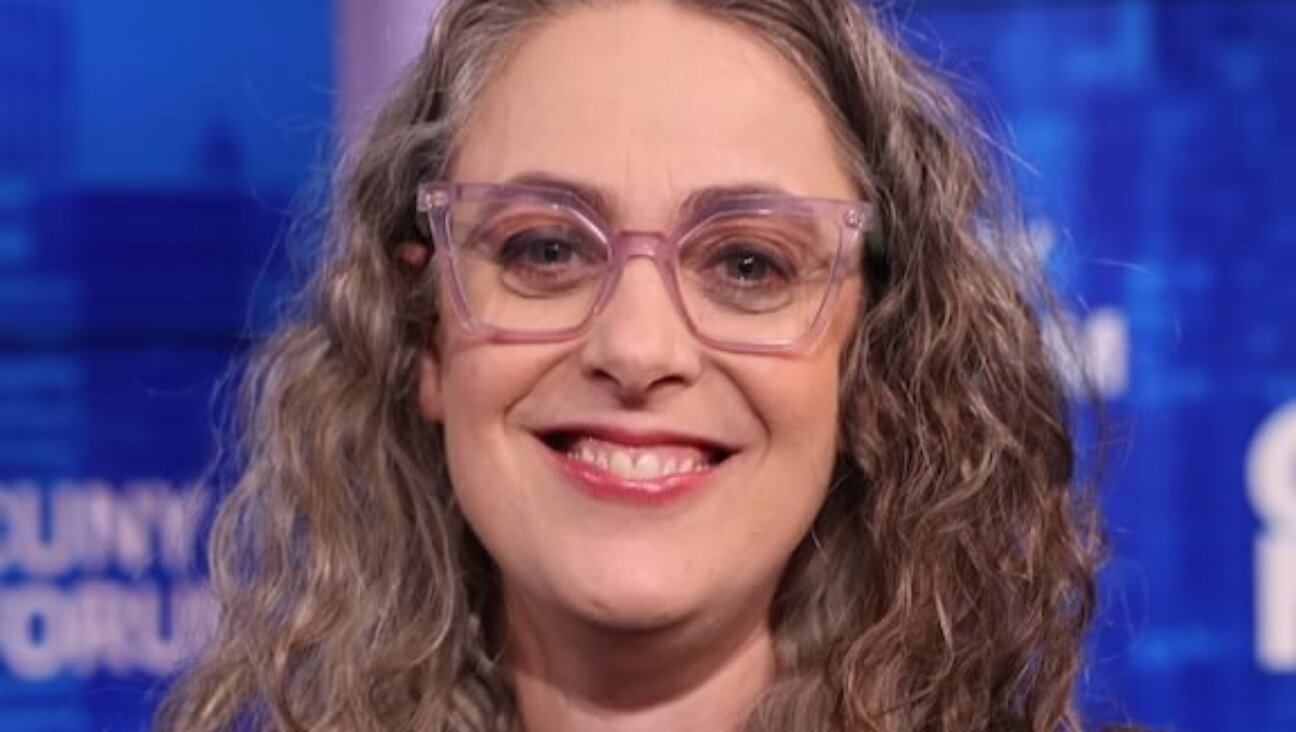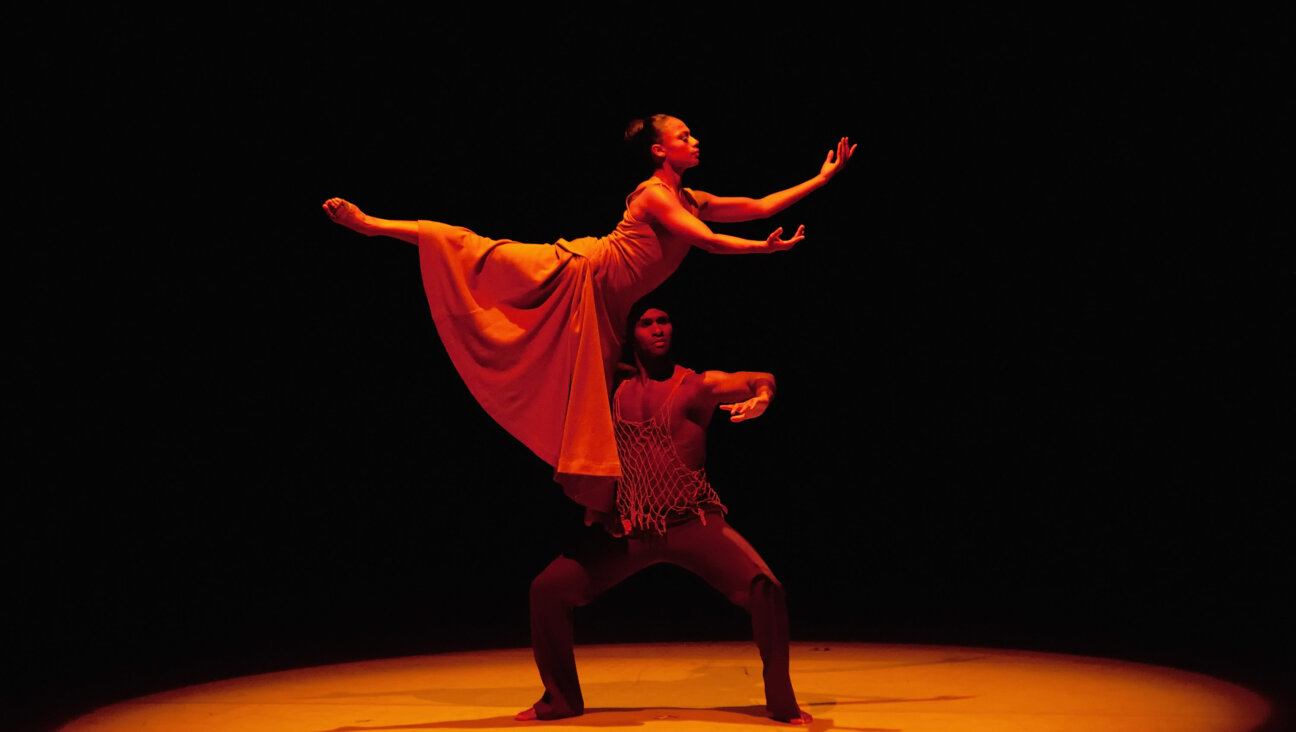Fact, fiction, and the campus protester who got arrested on his birthday
The problem with the Gaza solidarity encampments isn’t antisemitism. It’s that they’ve become a distraction from the war itself.
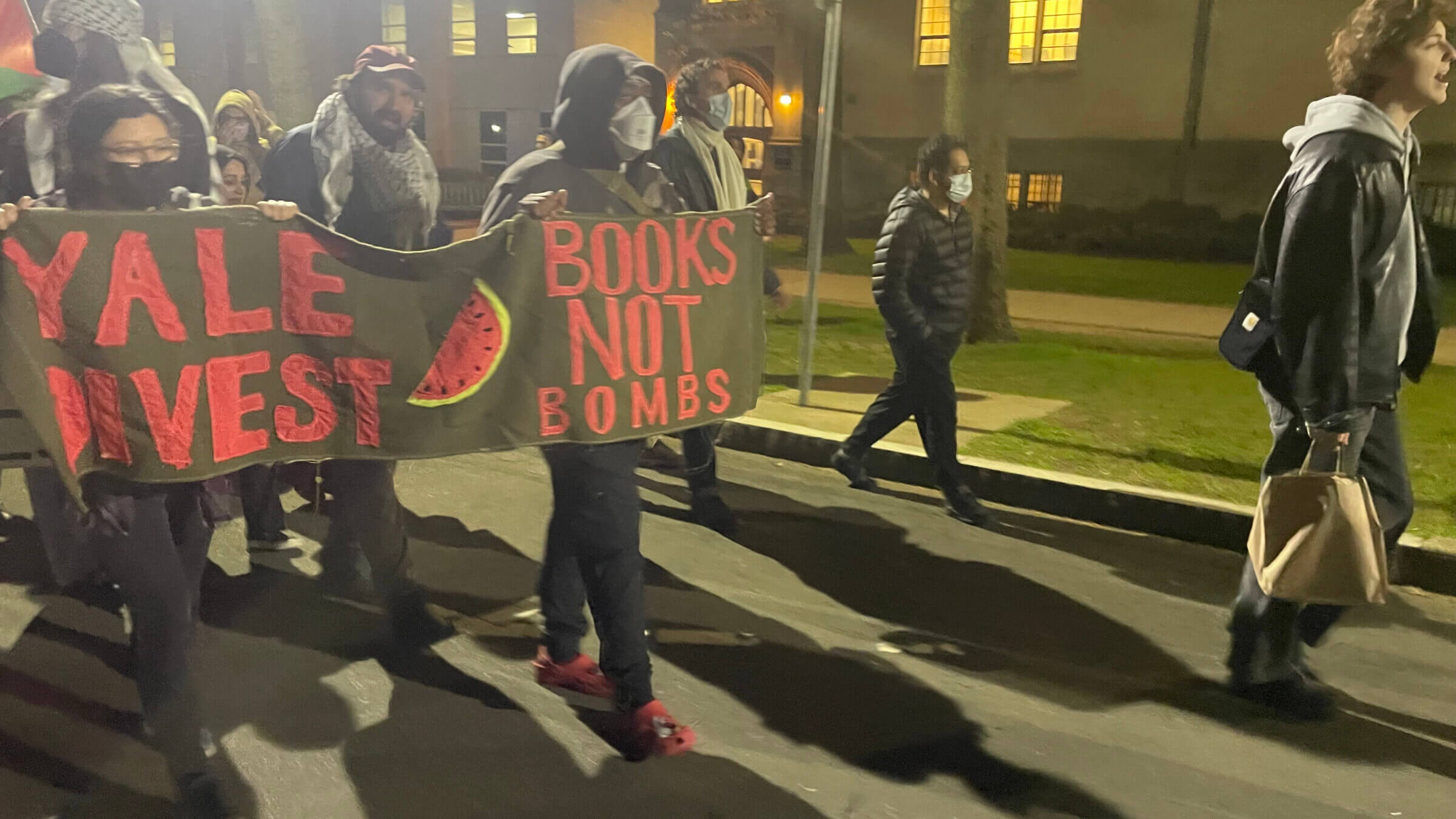
Over 40 Yale students have been arrested for pro-Palestine demonstrations at the university. Photo by Jodi Rudoren
NEW HAVEN, Connecticut — I didn’t get to the rally on Yale University’s Beinecke Plaza Wednesday night until nearly an hour after it started, so if there were speeches, I missed them. By 10 p.m., about 200 protesters were chanting things like, “Disclose, divest! We will not stop, we will not rest!” and “Muslim blood is not cheap / For our martyrs we will weep!”
Then the woman with the megaphone announced, “We’re going to take a little walk!” and the rally morphed into a march through the dark streets around and through a quiet campus the night before the start of final exams.
Most of the protesters wore kaffiyehs and COVID masks; a few with neon vests directed the crowd through streets that police cars had blocked off for the occasion. One young man had a small white dog on a leash. Another carried a white-frosted birthday cake with pink striped candles: An homage to kids killed in Gaza, I wondered, or just a student swinging through a protest on his way to a party?
The slogans were relatively inoffensive — nothing about Jews, Poland or even Zionism — but also somewhat inane; chanting about charging a university president with genocide betrays a fairly fundamental misunderstanding of both the Israel-Hamas war and higher education financing. What bugged me most was one of the leaders in the neon vests asking if I would blur people’s faces or get their permission before posting any photos.
Umm, no. We were on Hillhouse Avenue, a public road. The protesters were shouting their demands, begging for attention. I’ll always stand up for their right to do so, but it comes with some responsibilities. The public also has rights, to see who is protesting and how — and we journalists have a responsibility to document it.
It feels like a massive understatement to say that the pro-Palestine protests on Yale and other campuses nationwide spun out of control this week. Some 2,000 people have been arrested at dozens of schools across the country. Finals are being canceled or postponed. The kids at Columbia lost me when they smashed the windows of Hamilton Hall and barricaded themselves inside.
As President Joe Biden put it yesterday, “Dissent must never lead to disorder.” And: “There’s the right to protest, but not the right to cause chaos. ”
The problem is not, as many Jewish leaders would have you believe, that the protest encampments are rife with antisemitism; they’re not. Many are in fact dotted with young Jews yearning to fulfill their Jewish values of tikkun olam, repairing our terribly fractured world. Real threats to Jewish students’ safety can and are being dealt with; vague concerns about those students “feeling unsafe” — or, if we were more honest, uncomfortable — are part of college, part of life in America.
The problem is that “Free Palestine!” is hopelessly reductive. And, worse, it’s somehow become a catchall for totally urelated concerns like climate change and U.S. police brutality. That has helped force a false, oversimplified paradigm of oppressed-oppressor onto a complicated situation with deeply flawed actors and many innocent victims on all sides.
This mischaracterization of the conflict is not limited to campus. It was embodied in a protest letter signed by authors withdrawing their work from PEN America’s prestigious literary awards over the organization’s response to the war. In the middle of the 1,277-word letter berating the free-speech organization for failing to use the word “genocide” to describe the war in Gaza was the statement, “There is fact and fiction.”
This was followed by the erroneous assertion, “The fact is that Israel is leading a genocide of the Palestinian people.” This is an opinion, not a fact, something these authors of fiction and non-fiction certainly know. In fact, the International Court of Justice ruling in January specifically did not say Israel was committing acts of genocide.
Facts can feel elusive in the Israeli-Palestinian conflict, which is at its core one of dueling narratives. Narratives are sometimes fiction but never purely fact. They are interpretations of reality, often rooted in perspective and identity.
The fact is that both Arabs and Jews have lived for generations between the Jordan River and the Mediterranean Sea. The fact is that 1948 included both the great Jewish triumph of Israel’s Declaration of Independence and the horrible catastrophe of Palestinian expulsion and death known as the Nakba. It’s also a fact that Hamas terrorists breached Israel’s border fence on Oct. 7 and brutally slaughtered civilians — and that Israel’s punishing response has left an unprecedented toll of death, destruction, displacement and starvation.
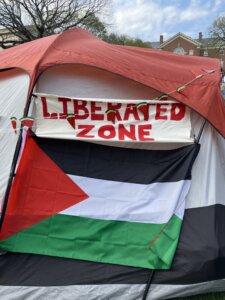
The real problem with the escalation of the campus protests is the way that they are now distracting from the war itself. Instead of talking about the need for a ceasefire and release of the hostages, Americans are consumed with questions over when and how the police should crack down on campus unrest. Instead of working to relieve starvation in Gaza, activists are focusing on the intricacies of university endowments.
As my friend and former collegue Nicholas Kristof argued in his column in The Times this week, universities “ending relations with Israel doesn’t help Gazans,” and could hurt students who rely on financial aid. He suggested that campus activists close down their encampments and raise money for Gaza humanitarian aid instead — or, better yet, spend the summer teaching English or learning Arabic in the occupied West Bank.
There are already polls suggesting the protests are shifting public opinion away from the cause, and I’m not surprised. I strongly oppose the false binary insisted on by activists on both sides — that you have to either “Stand with Israel” or charge everyone who does with genocide. But under pressure to pick a team, many Americans who urgently want the fighting in Gaza to stop are not going to align with students who violently break into university buildings or force cancellations of commencement.
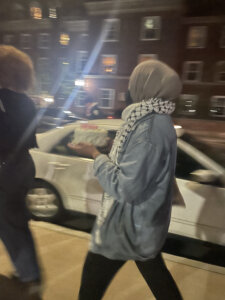
My own view has taken a sharp turn over the past two weeks. When Columbia University first called in the New York Police Department to clear a Gaza solidarity encampment from its front lawn, arresting more than 100 people on April 18, it seemed like an unnecessary crackdown on free speech. When the cops came back this week to rescue Hamilton Hall from the activists who’d taken it by force, it felt like an essential restoration of order.
At Yale, where I graduated in 1992 and returned this week to give the keynote at the annual banquet of the Yale Daily News, New Haven police officers had twice dismantled protest encampments, on April 22 and April 30. As the university buckled down for finals, administrators set down three ground rules for further protests: no tents, no amplification systems beyond megaphones, and no outdoor gatherings past 11 p.m.
Which is why four protesters — two of them students — were arrested around midnight. I had (stupidly) gone back to my hotel, but the YDN reported that the police first shooed the crowd away from outside the Yale president’s home and then from police headquarters before cuffing a few for trespassing and disorderly conduct.
The paper said it had seen photos and video showing the officers tackling two of the protesters and holding one on the ground for 90 seconds.
One of the students arrested was the guy I’d seen a few hours before carrying the birthday cake with the pink candles; he was still holding it two hours later.
Turns out he’s a senior history major who’d also been among the 44 protesters arrested the week before. Turns out the cake was neither about kids in Gaza nor for a party. His birthday was that night. He ended up spending it in jail.



